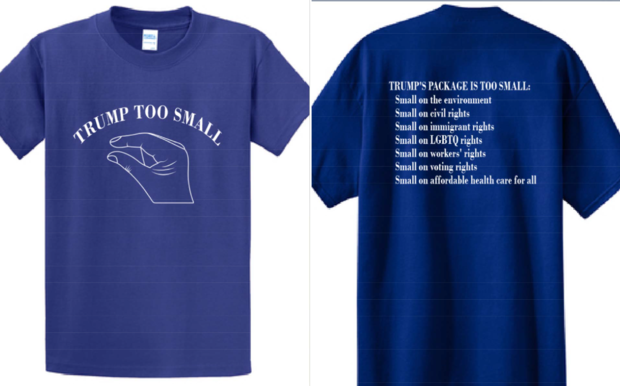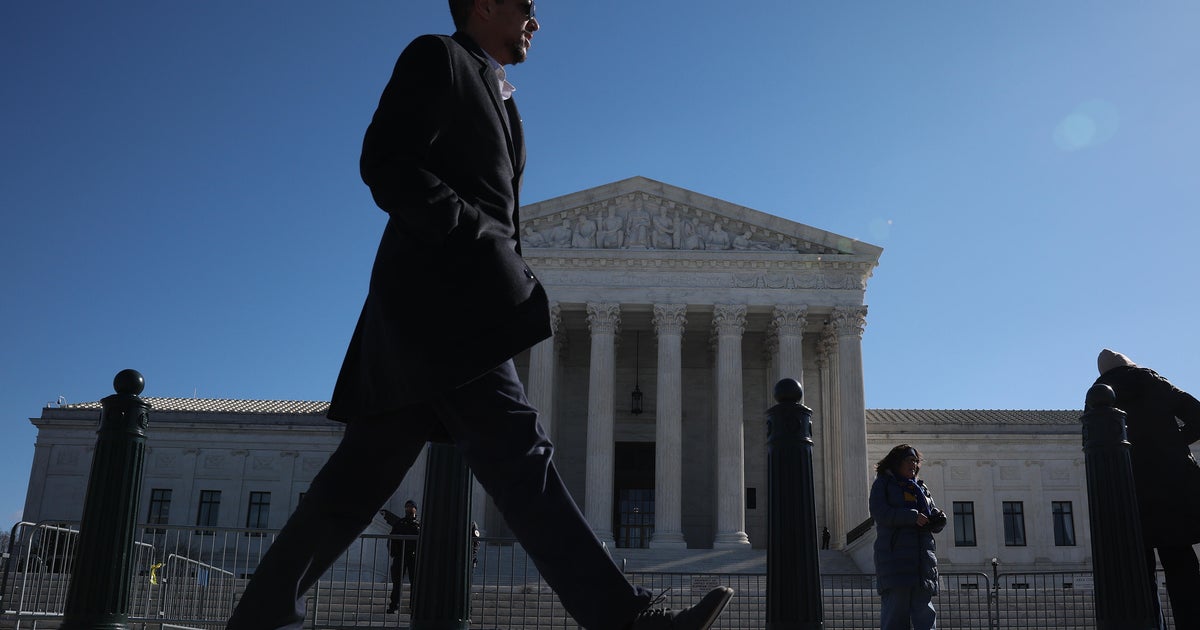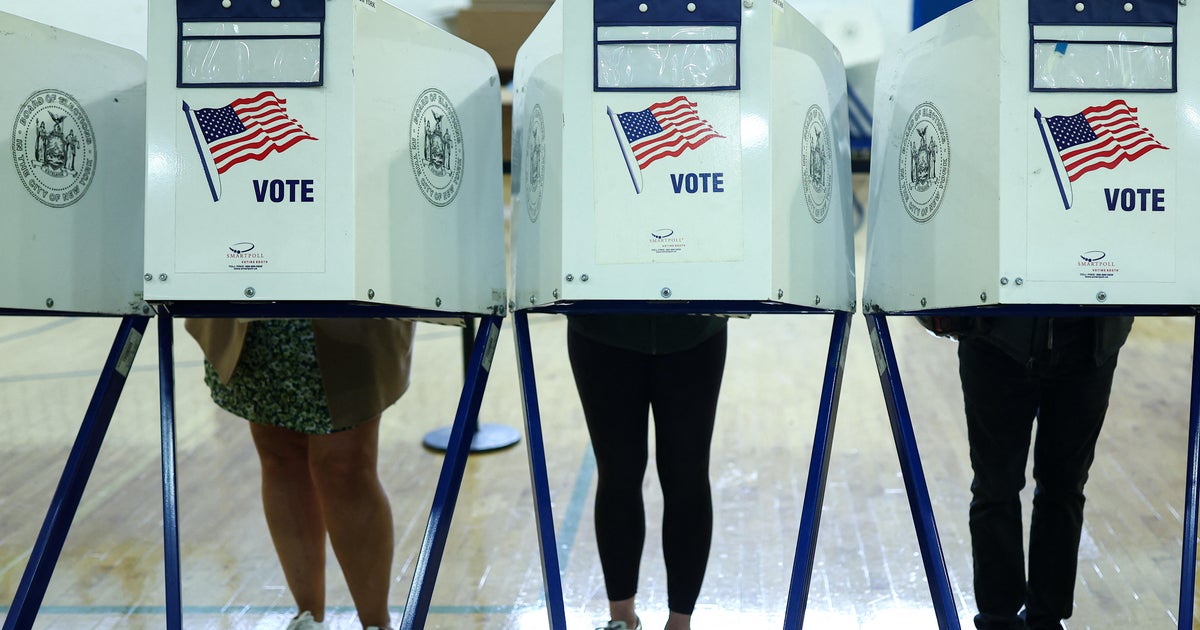Supreme Court agrees to hear dispute over effort to trademark "Trump Too Small"
Washington — The Supreme Court said Monday that it will hear a dispute arising from an unsuccessful effort to trademark the phrase "Trump Too Small" to use on t-shirts and hats, a nod to a memorable exchange between then-presidential candidates Marco Rubio and Donald Trump during a 2016 Republican presidential primary debate.
At issue in the case, known as Vidal v. Elster, is whether the U.S. Patent and Trademark Office violated the First Amendment when it refused to register the mark "Trump Too Small" under a provision of federal trademark law that prohibits registration of any trademark that includes a name of a living person unless they've given written consent. The justices will hear arguments in its next term, which begins in October, with a decision expected by June 2024.
The dispute dates back to 2018, when Steve Elster, a California lawyer and progressive activist, sought federal registration of the trademark "Trump Too Small," which he wanted to put on shirts and hats. The phrase invokes a back-and-forth between Trump and Florida Sen. Marco Rubio, who were at the time seeking the 2016 GOP presidential nomination, during a televised debate. Rubio had made fun of Trump for allegedly having small hands, insinuating that Trump has a small penis.
Elster explained to the Patent and Trademark Office that the mark is "political commentary" targeting Trump and was meant to convey that "some features of President Trump and his policies are diminutive," according to his application. The mark, Elster argued, "is commentary about the substance of Trump's approach to governing as president."
Included as part of his request is an image of a proposed t-shirt featuring the phrase "TRUMP TOO SMALL" on the front, and "TRUMP'S PACKAGE IS TOO SMALL" on the back, under which is a list of policy areas on which he is "small."
An examiner refused to register the mark, first because it included Trump's name without his written consent and then because the mark may falsely suggest a connection with the president.
Elster appealed to the Trademark Trial and Appeal Board, arguing the two sections of a law known as the Lanham Act applied by the examiner impermissibly restricted his speech. But the board agreed the mark should be denied, resting its decision on the provision of trademark law barring registration of a trademark that consists of a name of a living person without their consent.
But the U.S. Court of Appeals for the Federal Circuit reversed, finding that applying the provision of federal trademark law to prohibit registration of Elster's mark unconstitutionally restricts free speech.
"There can be no plausible claim that President Trump enjoys a right of privacy protecting him from criticism," the unanimous three-judge panel wrote in a February 2022 decision.
While the government has an interest in protecting publicity rights, the appellate court said, the "right of publicity does not support a government restriction on the use of a mark because the mark is critical of a public official without his or her consent."
The Biden administration appealed the decision to the Supreme Court, arguing that for more than 75 years, the Patent and Trademark Office has been directed to refuse registration of trademarks that use the name of a living person without his or her written consent.
"Far from enhancing freedom of speech, the decision below makes it easier for individuals like respondent to invoke enforcement mechanisms to restrict the speech of others," Biden administration lawyers wrote.
But Elster's attorneys argued the lower court's decision is narrow and "bound to the specific circumstances of this case."
"Unlike other cases in which the Court has reviewed decisions declaring federal statutes unconstitutional, this case involves a one-off as-applied constitutional challenge — one that turns on the unique circumstances of the government's refusal to register a trademark that voices political criticism of a former President of the United States," they told the court.




